#guernésiais
Text
27/03/2024
Souogn n. m.
[swõĩ]
"Care"
N'y a pas d'souogn - No matter/it's fine (lit. There's no care)
Par mànque dé souogn, il en aont fait énne vraie tchérue à tchens - By carelessness, they've made a real mess (lit. dog-drawn plough) of it
4 notes
·
View notes
Note
bonne internâtionale journeé d'la femne
Bouanne Journaïe Internâtiounale ès Faumes!
2 notes
·
View notes
Text
Anyone here speak Guernésiais? Asking for a friend (like actually)
3 notes
·
View notes
Text
n Welsh culture, an eisteddfod[a] is a festival with several ranked competitions, including in poetry and music.[2]: xvi The term eisteddfod, which is formed from the Welsh morphemes: eistedd, meaning 'sit', and fod, meaning 'be',[3] means, according to Hywel Teifi Edwards, "sitting-together." Edwards further defines the earliest form of the eisteddfod as a competitive meeting between bards and minstrels, in which the winner was chosen by a noble or royal patron.[4]
The first documented instance of such a literary festival and competition took place under the patronage of Prince Rhys ap Gruffudd of the House of Dinefwr at Cardigan Castle in 1176. However, with the loss of Welsh independence at the hands of King Edward I, the closing of the bardic schools, and the Anglicization of the Welsh nobility, it fell into abeyance. The current format owes much to an 18th-century revival, first patronized and overseen by the London-based Gwyneddigion Society. It was later co-opted by the Gorsedd Cymru, a secret society of poets, writers, and musicians founded by Iolo Morganwg, whose beliefs were "a compound of Christianity and Druidism, Philosophy and Mysticism."[5]: 191
Despite the Druidic influences and the demonstrably fictitious nature of Iolo Morganwg's doctrines, rituals, and ceremonies, both the Gorsedd and the eisteddfod revival were embraced and spread widely by Anglican and nonconformist clergy. The revival therefore proved enormously successful and is credited as one of the primary reasons for the continued survival of the Welsh language, Welsh literature, and Welsh culture after more than eight centuries of colonialism.
During his two 20th-century terms as Archdruid of the Gorsedd Cymru, Albert Evans-Jones, whose bardic name was Cynan and who was a war poet and minister of the Presbyterian Church of Wales, created new rituals for both the Gorsedd and the eisteddfod which are based upon the Christian beliefs of the Welsh people rather than upon Modern Druidry. After watching an initiation into the Gorsedd at the 2002 National Eisteddfod, Marcus Tanner wrote that the rituals "seemed culled from the pages of Tolkien's The Lord of the Rings."[5]: 189
Since its 18th-century revival, the eisteddfod tradition has been carried all over the world by the Welsh diaspora. Today's eisteddfodau (plural form) and the National Eisteddfod of Wales in particular, are in equal parts a Renaissance fair, a Celtic festival, a musical festival, a literary festival, and "the supreme exhibition of the Welsh culture."[6]: 52
In some other countries, the term eisteddfod is used for performing arts competitions that have nothing to do with Welsh culture or the Welsh language. In other cases, however, the eisteddfod tradition has been adapted into other cultures as part of the ongoing fight to preserve endangered languages such as Irish, Cornish, Breton, Scottish Gaelic, Canadian Gaelic, Guernésiais, and Jèrriais.
6 notes
·
View notes
Text
Enjoy a Day on Guernsey from Bournemouth
Still, there’s no deficit of days out you can enjoy, If you ’re having a vacation in Bournemouth. numerous of the destinations can be reached within half an hour, but if you ’re feeling further ambitious, you could go further amiss and witness a day out on the islet of Guernsey. And Bournemouth family hotel Marsham Court is the perfect base for your vacation.
The Bailiwick of Guernsey
The second largest of the Channel islets, Guernsey is the centre of the Bailiwick of Guernsey, which also includes Sark, Alderney and several small islets. Although not technically part of the UK, King Charles is its Head of State, and Westminster does have some limited authority over it.
The islet has been inhabited for at least 8,000 times, and in the once thousand has alternated between being British, French and independent. The original language of Guernsey was a shoptalk of French called Guernésiais, but Read More....
0 notes
Text
Literature
British literature
Anglo-Saxon (Old English) literature is included, and there is some discussion of Latin and Anglo-Norman literature, where literature in these languages relate to the early development of the English language and literature. There is also some brief discussion of major figures who wrote in Scots, but the main discussion is in the various Scottish literature articles.
The article Literature in the other languages of Britain focuses on the literatures written in the other languages that are, and have been, used in Britain. There are also articles on these various literatures: Latin literature in Britain, Anglo-Norman, Cornish, Guernésiais, Jèrriais, Latin, Manx, Scottish Gaelic, Welsh, etc.
Irish writers have played an important part in the development of literature in England and Scotland, but though the whole of Ireland was politically part of the United Kingdom between January 1801 and December 1922, it can be controversial to describe Irish literature as British. For some this includes works by authors from Northern Ireland.
0 notes
Text
Medieval Norman Castle A (25mm 1:72 scale Plastic Model)

Medieval Norman Castle A (25mm 1:72 scale Plastic Model)
Details: The Norman Castle A set consists of 13 segments, as follows: 3 corner left towers (short); 1 corner right tower (short); 2 middle towers left; 1 middle tower right; 5 wall segments; and 1 wall gate;
History: The Normans (Norman: Normaunds; French: Normands; Latin: Nortmanni/Normanni) were a population arising in the medieval Duchy of Normandy from the intermingling between Norse Viking settlers and indigenous West Franks and Gallo-Romans. The term is also used to denote emigrants from the duchy who conquered other territories such as England and Sicily. The Norse settlements in West Francia followed a series of raids on the French northern coast mainly from Denmark, although some also sailed from Norway and Sweden. Said settlements were finally legitimized when Rollo, a Scandinavian viking leader, agreed to swear fealty to King Charles III of West Francia following the siege of Chartres in 911 AD. The intermingling in Normandy produced an ethnic and cultural "Norman" identity in the first half of the 10th century, an identity which continued to evolve over the centuries.
The Norman dynasty had a major political, cultural and military impact on medieval Europe and the Near East. The Normans were historically famed for their martial spirit and eventually for their Catholic piety, becoming exponents of the Catholic orthodoxy of the Romance community. The original Norse settlers adopted the Gallo-Romance language of the Frankish land they settled, with their Old Norman dialect becoming known as Norman, Normaund or Norman French, an important literary language which is still spoken today in parts of mainland Normandy (Cotentinais and Cauchois dialects) and the nearby Channel Islands (Jèrriais and Guernésiais). The Duchy of Normandy, which arose from the Treaty of Saint-Clair-sur-Epte, was a great fief of medieval France. The Norman dukes exercised independent control of their holdings in Normandy, while at the same time being vassals owing fealty to the King of France, and under Richard I of Normandy (byname "Richard sans Peur" meaning "Richard the Fearless") the Duchy was forged into a cohesive and formidable principality in feudal tenure. By the end of his reign in 996, the descendants of the Norse settlers "had become not only Christians but in all essentials Frenchmen. They had adopted the French language, French legal ideas, and French social customs, and had practically merged with the Frankish or Gallic population among whom they lived".Between 1066 and 1204, as a result of the Norman conquest of England, most of the kings of England were also dukes of Normandy. In 1204, Philip II of France seized mainland Normandy by force of arms, having earlier declared the Duchy of Normandy to be forfeit to him. It remained disputed territory until the Treaty of Paris of 1259, when the English sovereign ceded his claim to the Duchy, except for the Channel Islands. In the present day, the Channel Islands (the Bailiwick of Guernsey and the Bailiwick of Jersey) are considered to be officially the last remnants of the Duchy of Normandy, and are not part of the United Kingdom but are instead self-governing Crown Dependencies.
The Normans are noted both for their culture, such as their unique Romanesque architecture and musical traditions, and for their significant military accomplishments and innovations. Norman adventurers played a role in founding the Kingdom of Sicily under Roger II after briefly conquering southern Italy and Malta from the Saracens and Byzantines, and an expedition on behalf of their duke, William the Conqueror, led to the Norman conquest of England at the historic Battle of Hastings in 1066. Norman and Anglo-Norman forces contributed to the Iberian Reconquista from the early eleventh to the mid-thirteenth centuries.
Norman cultural and military influence spread from these new European centres to the Crusader states of the Near East, where their prince Bohemond I founded the Principality of Antioch in the Levant, to Scotland and Wales in Great Britain, to Ireland, and to the coasts of north Africa and the Canary Islands. The legacy of the Normans persists today through the regional languages and dialects of France, England, Spain, Quebec and Sicily, and also through the various cultural, judicial, and political arrangements they introduced in their conquered territories.
Sourc: https://en.wikipedia.org/wiki/Normans
Era: Medieval Dark Ages
Description: This 3D Printed model represents an historically accurate facsimile at a scale that one can use for diorama making, model train railroad scenery, war gaming terrain, or creative projects.
Quality: Before selling a 3D print, we make a series of test prints at different model scales to ensure quality, and print reliability. In addition, we print each 3D model using the same resin or PLA plastic brand every time for consistent and repeatable results.
Scale: 25mm figure height (1:72 scale)
Type: 3D Printed Models: unpainted 3D Printed models for you to customize and integrate into your wargame tables, model railroad displays or other artistic and creative projects.
License: This is a licensed 3D Printed Model designed by 3D-Print-Terrain (www.3dprintterrain.de) all rights reserved.
Read the full article
0 notes
Photo
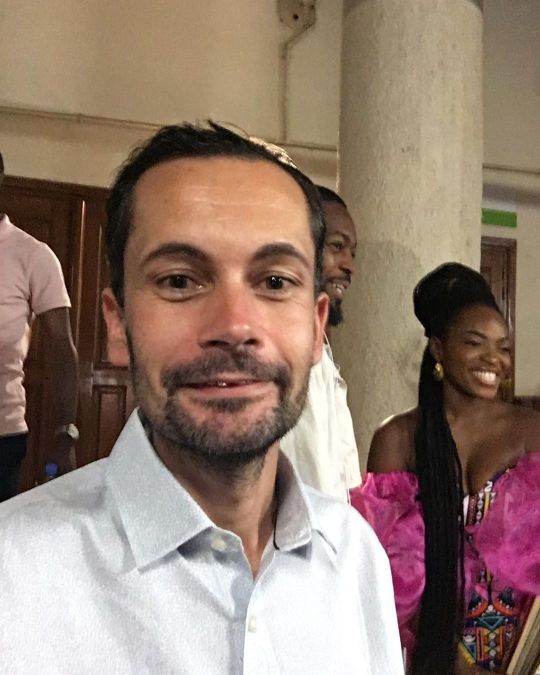
Véyaon 🇬🇬 , meaning ‘Go for it’ in Guernésiais is a great hope to inspire 🎶 #musicians👩🎤 #talents 🎼 and #innovators to come forward to showcase their successes in bilingual 🇫🇷🇬🇧 Cameroon 🇨🇲 (à Goethe Institut Kamerun) https://www.instagram.com/p/Cg4k0QWoAqD/?igshid=NGJjMDIxMWI=
0 notes
Text

did your language completely bypass influences from other settler groups over the course of several centuries or are you norman
#garnier#guernsey#channel islands#guernésiais#norman#norman languages#channel islands norman#british islands#latin#french#history#endangered languages#rare languages#langues#langues d’oïl#french languages#langblr#language#language blog#languageblr#language meme#language memes#linguistics#linguistics humor#language learning#language history
11 notes
·
View notes
Text
20 Endangered Languages in 2020: Guernésiais - Review
20 Endangered Languages in 2020: Guernésiais – Review

So I may have lost track of time here and forgotten to post my second progress report on Guernésiais—oops!—but I’ve been studying the whole time and am here to share how it’s all been!
(more…)
View On WordPress
#2020#2020 goals#challenge#endangered language#guernésiais#guernsey french#indigenous language#Language#language challenge#language learning#languages#learn a language
1 note
·
View note
Text
Mot d'Ogniet Guernésiais
Guernésiais Word of the Day
19/03/2024
Déca(o)ute adv. & prep.
[dɛkaut ~ dɛkoːt]
"Besides, furthermore, on the other hand"
Nous est lâssaïs, malades et nous a foim, mais décaoute tout chéna l'affaire va bian - We are tired, sick and hungry, but besides all that we're alright
3 notes
·
View notes
Text
Parole d'Ogniet Guernésiaise
Guernésiais Word of the Day
02/08/2023
Prumier n. m. & adj.
/prymjɛ/
"First"
Feminine: prumière.
Sen prumier naom - His/her first name
La prumière moignti - The first half
2 notes
·
View notes
Text
Writing systems
Latin
The Latin, or Roman, script was originally adapted from the Etruscan alphabet during the 7th century BCE to write Latin. The earliest known inscription dates from the 6th century BCE.
The letters -y- and -z- were taken from the Greek alphabet to write Greek loan words. Other letters were added from time to time as it was adapted for other languages.
The modern Latin script is used to write hundreds of different languages. Each language uses a slightly different set of letters, and they are pronounced in various ways.
It is the basis for the largest number of alphabets of any writing system and is the most widely adopted writing system in the world.
Notable features
Type of writing system: alphabet
Direction of writing: left to right in horizontal lines
Number of letters: 26 (standard letters)
Used to write: Aari, Abaza, Abellen, Abenaki, Abkhaz, Abui, Acehnese, Achagua, Achang, Acheron, Achi, Acholi, Achuar-Shiwiar, Achumawi, Adaizan, Adamua Fulfulde, Adzera, Afaan Oromo, Afar, Afrikaans, Aguaruna, A-Hmao, Ahtna, Ainu, Aja, Ajië, Akan, Akatek, Aklan, Akurio, Alabama, Albanian, Aleut, Algonquin, Alsatian, Altay, Alur, Alutiiq, Alyawarr, Amahuaca, Amarakaeri, Amarasi, Amele, ǂ’Amkoe, Amis, Andoa, Angami, Anuki, Anutan, Apache, Apma, Apurinã, Arabela, Aragonese, Araki, Aranese, Arapaho, Arawak, Arbëresh, Are, Arikara, Aringa, Aromanian, Arrernte, Arvanitic, Asháninka, Ashéninka, Assiniboine, Asturian, Atayal, Atikamekw, Atong, ‘Auhelawa, Avokaya, Awa Pit, Awara, Awing, Aymara, Azeri, Babine-Witsuwit’en, Bade, Bai, Baka, Bakairi, Balangao, Bambara, Baniwa, Banjar, Bantoanon, Baoulé, Barai, Barbareño, Bari, Bariba, Bartangi, Bashkir, Basque, Bassa, Bavarian, Beaver, Belarusian, Beli, Bemba, Bench, Betawi, Biete, Bikol, Biloxi, Bininj Kunwok, Bislama, Blackfoot, Blagar, Blin, Boholano, Bokar, Bolinao, Bongo, Bontoc, Bora, Bosnian, Botolan, Bouyei, Brahui, Breton, Bribri, Bugis, Buglere, Buhutu, Bulu, Bundjalung, Bunun, Burushaski, Busa, Bushi, Bwaidoka, Cabécar, Caddo, Caluyanon, Candoshi-Shapra, Cape Verdean Creole, Caquinte, Carib, Carijona, Carolinian, Casiguran Dumagat Agta, Catalan, Cayuga, Cebuano, Central Sinama, Chami, Chamicuro, Chamorro, Chang, Cha’palaa, Chatino, Chavacano, Chechen, Cherokee, Cheyenne, Chinanteco, Cimbrian, Chichewa, Chickasaw, Chilcotin, Chinook, Chipeyan, Chippewa, Chitimacha, Chiwere, Choctaw, Chokwe, Ch’ol, Chorti, Chrau, Chru, Chukchansi, Chuukese, Cipu, Cocopah, Coeur d’Alene, Cofán, Comanche, Comorian, Comox, Cora, Cornish, Corsican, Cree, Creek, Croatian, Crow, Cubeo, Cumbric, Curripaco Cuyonon, Cypriot Arabic, Czech, Daga, Dagaare, Dagbani, Dalmatian, Danish, Dananshan Miao, Dargwa, Daur, Dawan, Dayak, Daza, Deg Xinag, Dena’ina, Dengebu, Dhao, Dholuo, Dhuwal, Digaro Mishmi, Digo, Dinka, Ditidaht, Dijanang, Djinba, Dogrib, Domari, Dongotono, Drehu, Drung, Duala, Dupaningan, Duri, Dusun, Dutch, Edo, Efik, Ekoka !Kung, Elfdalian, Emae, Emilian-Romagnol, English, Enindhilyagwa, Eperara, Esperanto, Estonian, Ewe, Ewondo, Extremadura, Eyak, Fala, Fanagalo, Fang, Fante, Faroese, Fijian, Fiji Hindi, Finnish, Flemish, Folkspraak, Fon, Fox, Franco-Provençal, French, French Guianese Creole, Frisian, Friulian, Fula, Fur, Futuna-Aniwa, Futunan, Fuyu Kyrgyz, Ga, Gagauz, Galician, Gallo, Galoli, Gamilaraay, Ganda, Garawa, Garifuna, Garo, Gawwada, Gen, Genoese, German, Ghadamès, Ghomara, Gija, Gitxsan, Goemai, Gonja, Gooniyandi, Gottscheerish, Greenlandic, Griko, Guadeloupean Creole, Guambiano, Guanano, Guarani, Guaymí, Guere, Guernésiais, Gugadja, Glui, Guinea-Bissau Creole, Guugu Yalandji, Guugu Yimiyhirr, Gwere, Gwich’in, Haida, Haisla, Haitian Creole, Halkomelem, Hamer, Hän, Hani, Hausa, Hawaiian, Hawu, Heiltsuk, Herero, Hidatsa, Hiligaynon, Hiri Motu, Hixkaryana, Hmar, Hmong Dau, Hmong Njau, Hmu, Hoava, Ho-Chunk, Hopi, Huambisa, Hungarian, Huarijio, Huasteco, Huichol, Huilliche, Hunsrik, Hupa, Iban, Ibibio, Icelandic, Ido, Idu Mishmi, Ifugao, Igbo, Ikizu, Ikpeng, Ilocano, Inapari Sami, Indonesian, Ingrian, Ingush, Interglossa, Interlingua, Interslavic, Innu-aimun, Iñapari, Iñupiaq, Ipai, Iraqw, Irish, Ishkashimi, Isnag, Istriot, Italian, Iu Mien, Ivatan, Ivilyuat, Ixil, Jabo, Jakaltek, Jamaica, Jaminjung, Japreria, Jaqaru, Jarai, Jarawa, Javanese, Jebero, Jersey Norman French, Jicarilla, Jingulu, Jita, Jola-Fonyi, Jru, Judeo-Spanish, Jul’hoan, Juhuri, Jur Modo, Kabiye, Kabyle, Kadazandusun, Kadugli, Kagayanen, Kaingang, Kaiwá, Kakabai, Kala Lagaw Ya, Kam, Kambari, Kamda, Kanakavanu, Kanasi, Kanga, Kaninuwa, Kanuri, Kapampangan, Kapingamarangi, Kaqchikel, Karaim, Karakalpak, Karamojong, Karbi, Karelian, Karuk, Kasem, Kashaya, Kashibo, Kashinawa, Kashubian, Kaska, Kaurna, Kavalan, Kawaiisu, Kazakh, Keiga, Keliko, Keres, Ket, Khakas, Khasi, Khinalug, Khoekhoe, Khorasani Turkic, Khufi, Ki’che, Kichwa, Kickapoo, Kikuyu, Kiliwa, Kimbundu, Kinaray-a, Kinyarwanda, Kiribati, Kirundi, Kisi, Kissi, Kituba, Klallam, Klamath, Klingon, Koho, Koasati, Kom, Kongo, Konjo, Konkani, Kosraen, Koti, Kove, Koyukon, Kri, Krongo, Kumeyaay, Kumyk, Kuna, Kuot, Kunjen, Kurmanji Kurdish, Kurti, Kutenai, Kuuk Thaayorre, Kven, Kwak̓wala, Laalaa, Lacandon, Lahu, Lampung, Latin, Latino sine Flexione, Latgalian, Latvian, Ledo Kaili, Lele, Leonese, Lezgi, Lingala, Lingua Franca Nova, Ligurian, Lilloet, Limba, Limburgish, Liq’wala, Lithuanian, Livonian, Llanito, Lojban, Lombard, Lopit, Lote, Lotuko, Loup, Lower Tanana, Lokoya, Lozi, Ludic, Luganda, Lugbara, Luiseño, Lule Sami, Lumun, Luobohe Miao, Lushootseed, Luxembourgish, Maasai, Machiguenga, Macushi, Ma’di, Madurese, Makah, Makasarese, Makonde, Makhuwa, Malagasy, Malay, Malecite-Passamaquoddy, Maltese, Mam, Mandan, Mandar, Mandinka, Mangareva, Manggarainese, Maninka, Mankanya, Mano, Manx, Maore, Maori, Mapuche, Maranao, Marba, Maricopa, Marshallese, Masbateño, Mashan Miao, Maskelynes, Massachusett, Martu Wangka, Mato, Maung, Mauritian Creole, Mayo, Mazahua, Mazatec, Matigsalug, Mbula, Mbum, Megleno-Romanian, Mele-Fila, Menominee, Meriam Mir, Mescalero-Chiricahua, Miami, Michif, Mikasuki, Mi’kmaq, Miju, Minangkabau, Mirandese, Miriwoong, Miskito, Mixtec, Miya, Mizo, Mòcheno, Mohawk, Mohegan, Mohican, Mojave, Mokilese, Moldovan, Monégasque, Monguor, Mono, Montagnais, Montenegrin, Moriori, Morokodo, Moronene, Mortlockese, Moru, Mossi, Motu, Mozarabic, Mualang, Muna, Mundari, Munsee, Muong, Murrinh-Patha, Murui Huitoto, Musey, Musi, Mutsun, Mwaghavul, Mwani, Mwotlap, Nagamese, Nahuatl, Nanti, Narim, Naro, Narrangansett, Naskapi, Natchez, Nauruan, Navajo, Naxi, Ndrumbea, Ndyuka, Neapolitan, Nenets, Nez Perce, Ngaanyatjarra, Ngiyambaa, Nigizim, Nheengatu, Nias, Nihali, Nisga’a, Niuafo’ou, Niuean, Nkore, Nobiin, Nomatsiguenga, Noonm Noogar, Norfuk, Norn, North Frisian, North Slavey, Northern Emberá, Northern Ndebele, Northern Paiute, Norther Pomo, Northern Sami, Northern Sotho, Norwegian, Northwest Maidu, Novial, Nuer, Nukuoro, Nukuria, Nunggubuyu, Nupe, Nuu-Chah-Nulth, Nuxalk, Nllng, Nyelâyu, Nyole, Nzema, Occidental, Occitan, Okanagan, Okinawan, Olu’bo, Onge, Onandaga, O’odham, Oowekyala, Omaha, Oneida, Old Norse, Ona, Ontong Java, Oromo, Oroqen, Oroshor, OshiWambo, Ossetian, Otomi, Ottawa, Paakantyi, Paama, Páez, Paicî, Paipai, Paite, Paiwan, Palauan, Palenquero, Panare, Pangasinana, Papantla Totonac, Papiamento, Paraujuano, Paresi, Patwin, Pauna, Pawnee, Paya, Pazeh, Pemon, Penrhyn, Piapoco, Picard, Piedmontese, Pikin, Pilagám, Pingelapese, Pintupi, Pipil, Pirahã, Pite Sami, Pitjantjatjara, Pochuri, Pohnpeian, Polci, Polish, Pomo, Pontic Greek, Portuguese, Potawatomi, Powhatan, Pukapukan, Puluwatese, Purepecha, Puyuma, Q’anjob’al, Q’eqchi’, Qo Xiong, Quapaw, Quechan, Quechua, Quiripi, Rade, Raga, Rakahanga-Manihiki, Rapa Nui, Rarotongan, Rennellese, Réunion Creole, Rifian, Ripuarian, Rohingya, Ronga, Rotokas, Romani, Romanian, Romániço, Romansh, Rotuman, Roviana, Rukai, Rushani, Saanich, Saaroa, Safen, Sahaptin, Saisiyat, Sakao, Sakapultek, Salar, Saliba, Salish, Sambal, Samoan, Sanglechi, Sango, Saramaccan, Santa, Sardinian, Sarikoli, Sarnámi Hindustani, Sasak, Saterland Frisian, Satawalese, Savosavo, Scots, Scottish Gaelic, Secoya, Sedang, Seediq, Sekani, Sena, Seneca, Serbian, Serer, Seri, Serrano, Seychelles Creole, Seto, Shavante, Shawiya, Shawnee, Sheko, Shetlandic, Shilha, Shilluk, Shipibo, Shona, Shoshone, Shuar, Shughni, Shuswap, Siar, Sicilian, Sierra Leonean Creole, Sikaiana, Silesian, Sio, Sioux, Skolt Sami, Slovak, Slovene, Slovio, Soga, Somali, Soninke, Sonsorelese, Sorbian, South Slavey, Southern Ndebele, Southern Sami, Southern Sotho, Southern Tiwa, Spanish, Squamish, Sranan, Saint Lucian Creole, Stellingwarfs, Stoney, Sumbawa, Sundanese, Supyire, Susu, Swahili, Swati, Swedish, Taa, Tagabawà, Tagalog, Tahitian, Tahltan, Taíno-Borikenaíki, Tairoa, Taiwanese, Tai Ya, Takuu, Talysh, Tamahaq, Tamasheq, Tammari, Taos, Tarahumara, Tami, Tanacross, Tangale, Tangkhul Naga, Tariana, Tatar, Tausūg, Tboli, Tedim, Tehuelche, Teiwa, Terêna, Temne, Tepehuán, Teribe, Ter Sami, Tetum, Thompson, Ticuna, Tii, Tiipai, Tikopia, Timbisha, Tiriyó, Tiwi, Tlapanec, Tlingit, Toba Qom, Tocho, Tojolabal, Tok Pisin, Tokelauan, Tolai, Tolaki, Tolowa, Tombulu, Tondano, Tongan, Tongva, Toposa, Toqabaqita, Toraja-Sa’dan, Torres-Strait Creole, Tsafiki, Tshiluba, Tshimshian, Tsonga, Tsotsil, Tsou, Tsuut’ina, Tswa, Tswana, Tuareg, Tucano, Tumak, Tumbuka, Tunica, Turkish, Turkmen, Turoyo, Tuscarora, Tutchone, Tuvaluan, Tuvan, Twi, Tzeltal, Tz’utujil, Ubang, Ubir, Udege, Udi, Uduk, Ulithian, Umbundu, Ume Sami, UNami, Upper Kuskokwin, Upper Tanana, Urarina, Uyghur, Uzbek, Vadi, Vaeaku-Taumako, Värmlandic, Vastese, Venda, Venetian, Veps, Vietnamese, Volapük, Võro, Vurës, Wa, Wa’di, Wakhi, Wallisian, Walloon, Wambaya, Wandamen, Wantoat, Warlpiri, Waray-Waray, Wardaman, Washo, Wayana, Wayuu, Welsh, Wemba Wemba, Wendat, West Frisian, Western Rote, Wichita, Wik-Mungkan, Winnebago, Wintu, Wiradjuri Wolaytta, Woleaian, Wolof, Wukchumni, Wymysorys, Xârâcùù, Xhosa, Yabem, Yaghnobi, Yami, Yaminawa, Yanesha’, Yang Zhuang, Yao, Yapese, Yaqui, Yazghulami, Yemba, Yimchungrü, Yindjibarndi, Yolngu, Yoruba, Yucatek Maya, Yuchi, Yucuna, Yup’ik, Yurok, Záparo, Zapotec, Zarma, Zazaki, Zeelandic, Zenaga, Zigula, Zinza, Zou, Zulu, Zuni, and Zuwara Berber
Before a vowel or between vowels -i- used to be pronounced /j/. Elsewhere it was pronounced /i/.
Accented letters can be used to modify the pronunciation of a letter, to indicate emphasis in a sentence, pitch or intonation of a word or syllable, vowel length or the stress in a word, and to visually distinguish homophones.
Latin alphabet
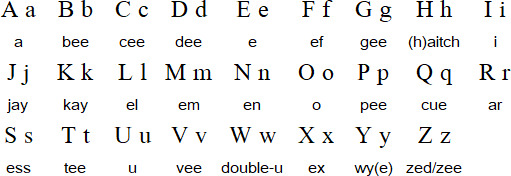
Accented letters

Some extra letters

Ligatures

64 notes
·
View notes
Photo
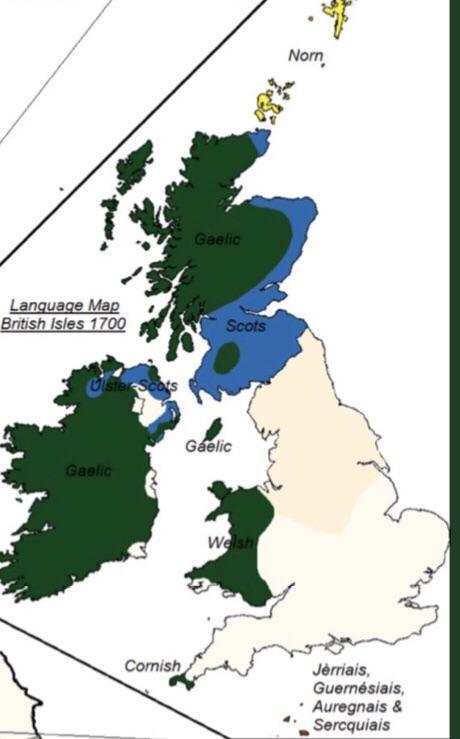
Languages of the British Isles in 1700.
RomanichalGypsy:
Anglic languages: English and Lowland-Scots and Ulster-Scots. These languages are both descended from old English. Old English spread from the Kingdom of Northumbria into most of the Lowlands. After a while the English spoken in Scotland diverged into its own language. Ulster-Scots is spoken by the descendants of Scotsman who moved to Northern Ireland during the Ulster Plantations.
Brittonic languages: Welsh and Cornish. Both the Welsh and Cornish languages are languages that descended from the Brittonic language that was pushed West by the invading Anglo-Saxon forces.
Gaelic: Manx Gaelic, Scottish Gaelic and Irish Gaelic. The map seems to ignore the fact that these are three separate languages. All three languages are descended from Old Irish. The Gaelic languages are spoken in Ireland, The Isle of Man and the Highlands/Hebrides is Scotland (This area in Scotland is known as Gaidhealtachd in Scottish Gaelic, which translates to Gaeldom).
Norn: Norn was a Nordic language that was spoken in both Shetland and Orkney, it was descended from Norwegian.
Norman French dialects (Guernésiais, Jèrriais, Auregnais and Sercquiais) are spoke across the Channel Islands.
Nowadays, Cornish, Manx, Auregnais, Norn are all extinct as first languages. Although there have been revival movements for them.
On the map, you can also see Little England beyond Wales. This area is Southwest Wales was settled by Anglo-Normans and Anglo-Flemings in the 12th century. The region is English in culture, language, architecture ETC and in heritage the region is Anglo-Flemish and Anglo-Norman. They are completely surrounded by the Welsh-speaking rural areas of Western Wales.
203 notes
·
View notes
Note
Salut! In response to your earlier post, I live in Guernsey. Born & raised here. Guernésiais (norman french) is probably the most unique thing, even though hardly anyone knows it anymore. Also I don't think we realise it but we're very lazy local travellers. People don't like driving to the other end of the island, even if it only takes 20mins. This is why there were so many dialects on island in the past, despite it being so small!
I’d love to go to Guernsey one day, my great father lived a few years there during the Second World War and that’s such an interesting fact!!
3 notes
·
View notes
Text
Nationalities! #1 Europe
So you’re been dying to be able to tell French people where YOU come from but have no idea how to translate it, well, you can now die in peace. And I will try to do the 195 countries of our world because I said I would.
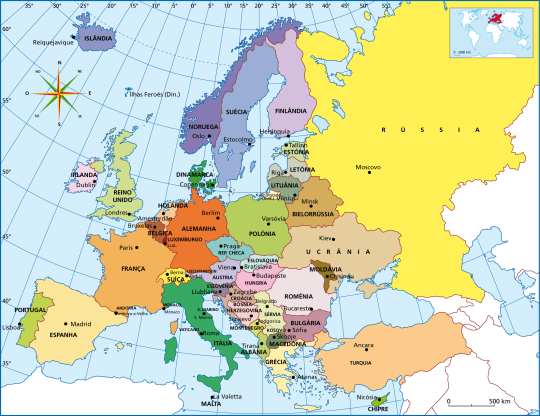
Ex : sou de Portugal, sou português-a
Europe :
(in brackets = not official ; in slashs = independant)
(Abecásia : abecásio)
/Acrotíri e Deceleia/ (military stuff)
Albânia : albanês
Alemanha (Germany) : alemão
Andorra : andorrano
Inglaterra (England) : inglês
Arménia : arménio
Áustria .: austríaco
Azerbaijão : azerbaijano
Bélgica : belga
Bielorrússia : bielorrusso
Bósnia-Herzegovina : bósnio
Bulgária : búlgaro
Croácia : croata
Chipre (Cyprus) : ciprioto
(Chipre do Norte : ciprioto turco / turco)
Dinamarca : dinamarquês
Escócia (Scotland) : escocês
Espanha (Spain) : espanhol
Estónia : estoniano

Finlândia : finlandês
Geórgia : georgiano
/Gibraltar : gibraltina/
Gréca : grego
/Guernsey : Guernésiais/
(Nagorno-Karabakh : karabakhi)
Hungria (Hungary) : húngaro
/Ilha de Man (Isle of Man) : manês/
/Ilhas Faroé (Faroe islands) : feroês
Irlanda : irlandês
Islândia : islandês
Itália : italiano
/Jersey : jersês/
Cazaquistão : cazaque
(Kosovo : kosovar)
Letônia (Latvia) : letão
Liechtenstein : liechtensteinense
Lituânia : lituano
Luxemburgo : luxemburguês
Macedónia : macedônio
Malta : maltês
Moldávia : moldavo
Mónaco : monegasco
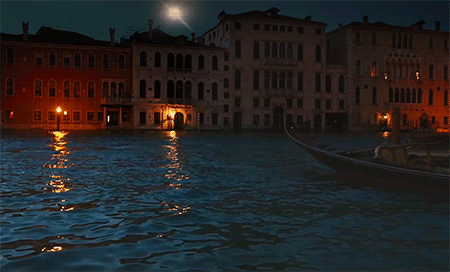
Montenegro : montenegrino
Noruega (Norway) : norueguesa
(Ossétia do Sul (South Ossetia) : sul-osseto)
Países-Baixos “low countries” / Holanda (Netherlands) : holandês
Gales (Wales) : galês
Polónia (Poland) : polaco
Portugal : português
República Checa / Chéquia (Czech rep) : checo
Románia (Romania) : romanês
Reino Unido (United Kingdom) : britânico
Rússia : russo
San Marino : são-marinhense
Sérvia : sérvio
Eslováquia : eslovaco
Eslovénia : esloveno
Suécia (Sweden) : sueco
Suíça (Switzerland) : suíço
(Transdniéstria : transnistriano)
Turquia : turco
Ucrânia : ucraniano
Vaticano : vaticano
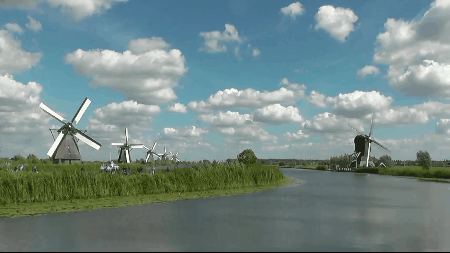
#places#place#location#geography#geo#countries#eu#european#european portuguese#portuguese#language#languages#polyglot#langblr#langblog#language blog#bilingual#multilingual#study#studying#learn#learning#book#vocab#vocabulary#words#vocab list#vocabulary list#word list#langs
7 notes
·
View notes